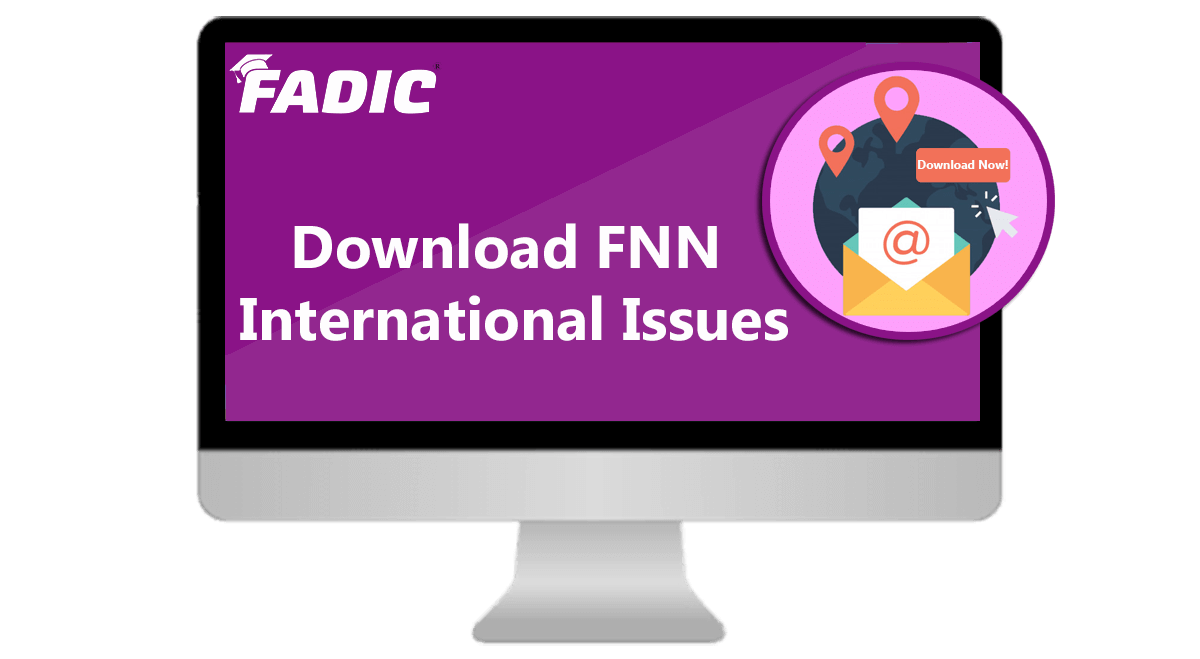3- Wednesday Research News – 8th December
1 – Risk factors for severe PCR-positive SARS-CoV-2 infection in hospitalized children: a multicenter cohort study
- Children are less likely than adults to have severe outcomes from SARS-CoV-2 infection and the corresponding risk factors are not well established.
- This study aims to identify risk factors for severe disease in symptomatic children hospitalized for PCR-positive SARS-CoV-2 infection.
- The primary outcome was severe disease defined as a WHO COVID-19 clinical progression scale of ≥6, i.e., requirement of non-invasive ventilation, high flow nasal cannula, mechanical ventilation, vasopressors, or death.
- Multivariable logistic regression was used to evaluate factors associated with severe disease.
- Pediatric risk factors for severe SARS-CoV-2 infection vary according to age and can potentially guide vaccination programs and treatment approaches in children.
Source: MedRxiv
2- Durability of SARS-CoV-2 Antibodies from Natural Infection in Children and Adolescents
- Recent data suggest the SARS-CoV-2 Delta (B.1.617.2) variant is more transmissible among children compared to the Alpha (B.1.1.7) variant.
- The true incidence and longitudinal presence of antibody response to SARS-CoV-2 infection is not known, however.
- In this study, they provided estimates of antibody response using Texas Coronavirus Antibody REsponse Survey (Texas CARES) data, a prospective population-based seroprevalence project designed to assess antibody status over time among the general population throughout the state.
- The results suggest that infection-induced antibodies persist and thus may provide some protection against future infection for at least half a year.
- 9% of the sample were negative for infection-induced antibodies at their third measurement point, suggesting a significant proportion of children have still not acquired natural infection.
Source: MedRxiv
3- A comparison of health care use after severe COVID-19, respiratory syncytial virus, and influenza in children
- The aim of the study was to explore whether children in hospital care with COVID-19 have increased post-discharge health care use when compared to children in hospital care with 1) RSV infection, and 2) other RTIs.
- They found a slight increase in primary health care use in the first four weeks after discharge for children aged 1-12 months with COVID-19 when compared to children with RSV infection.
- The findings imply no severe impact on health care use after hospitalization with COVID-19 compared to hospitalization with RSV infection or other RTIs.
- The etiological mechanisms for potentially worse post-hospitalization complaints or health-seeking behavior for COVID-19 than for other RTIs in children should be further explored.
Source: MedRxiv
4- An immune correlate of SARS-CoV-2 infection and severity of reinfections
- An immune correlate of protection from SARS-CoV-2 infection is urgently needed.
- In this study, they used an ongoing household cohort with an embedded transmission study that closely monitors participants regardless of symptom status.
- Prior infection-induced immunity is protective against infection when predominantly gamma and delta SARS-CoV-2 circulated.
- The protective antibody titers presented may be useful for vaccine policy and control measures.
- While second infections were somewhat less severe, they were not as mild as ideal.
- A strategy involving vaccination will be needed to ease the burden of the SARS-CoV-2 pandemic.
Source: MedRxiv
5- SARS-CoV-2 vaccination predicts COVID-19 progression and outcomes in hospitalized patients
- SARS-CoV-2 vaccination might impact on clinical progression of cases with breakthrough COVID-19 disease.
- This study aims to evaluate the impact of SARS-CoV-2 vaccination on disease progression in COVID-19 hospitalized patient.
- Two-hundred eighty-four consecutive COVID-19 hospitalized patients, including 50 vaccinated cases entered the study.
- Compared to unvaccinated cases, vaccinated patients were older, exhibited more comorbidities and did not differ for COVID-19 severity at admission.
- During hospitalisation, unvaccinated patients showed worse disease progression, including higher need of oxygen and higher risk of death compared to vaccinated patients.
- These findings argue for an important reduction in severity among vaccine breakthrough infection compared to unvaccinated cases in COVID-19 disease.
Source: MedRxiv
6- Gut metabolites predict Clostridioides difficile recurrence
- Clostridioides difficile infection (CDI) is the most common hospital acquired infection.
- Although primary CDI has been extensively linked to gut microbial dysbiosis, less is known about the factors that promote or mitigate recurrence.
- Moreover, previous studies have not shown that microbial abundances in the gut measured by 16S rRNA amplicon sequencing alone can accurately predict CDI recurrence.
- The prospective, longitudinal and multi-omic nature of our CDI recurrence study allowed them to uncover previously unrecognized dynamics in the microbiome and host presaging recurrence, and, in particular, to elucidate changes in the understudied gut metabolome.
- Moreover, they demonstrated that a small set of metabolites can accurately predict future recurrence.
- The findings have implications for development of diagnostic tests and treatments that could ultimately short-circuit the cycle of CDI recurrence.
Source: MedRxiv

- Read more from FADIC Blog, with many articles with evidence based articles.
- Learn More Through FADIC® – Online Programs & Mini-Courses.
- Listen Now to FADIC Podcast focusing on varieties of pharmacist perspectives in specialties.
- Read More Now about FADIC Pharmacy Events to get more Experience.
Course Copyrights:
All Courses is meant for SINGLE user use only.
If more than one person acceced this course, they will be BLOCKED Forever.
FeedBack
FADIC 2021 Clinical Research FNN E-News
Directed By/ Rasha Abdelsalam
The FADIC Pharmacy’s Clinical Research FNN E-News works like this:
- Each business morning, you receive an email message with the text of that day’s FNN.
- The message has a link to a PDF file that can be viewed or printed format.
- Issues for the past reports.
Each and every business day, things change!!
- More articles are published
- New drugs are approved
- Research is presented at medical meetings, policy decisions affecting practice are debated and confirmed.
By subscribing to the FADIC 2020 Pharmacotherapy Daily News (FNN), a daily publication of the Daily News Network “FNN” will be sent to your Email.
📑 Sample of Monthly Newsletter 📥
You can keep up with what’s important
- You need not to be disturbed with many newsletters crowding your email inbox about everything.
- FADIC FNN’s provides you with each business day with a morning email summary of developments in all the areas critical to your clinical practice
FADIC 2021 Clinical Research FNN E-News (FNN) Emails Contain:
- Just-published articles in the biomedical literature
- Emphasis on the FOUR weekly major important medical journals such as “Lancet, BMJ, JAMA, and NEJM”
- In addition to the two internal medicine journals as“Annals and JAMA Internal Medicine”
- Finally, the leading journals in medical speciality areas such as: “IDSA, JACCP, Annals of Pharmacotherapy, and others”.
- News briefs covering newly approved drugs, warnings and recalls announced by FDA, Saudi FDA, research at medical meetings.
- Lastly, other important news from International Organizations such as “CDC, WHO, and others”.
Why FADIC 2021 Clinical Research E-News ?
- It helps to keep up with the literature!
- Provide you with the Updated with the latest in your clinical practice. Wherever you are, and Whenever you need!
- Help you to share in the advance in clinical career. In addition to adding an impressive image to the pharmacists all-around!
Subscribe to FADIC 2021 Clinical Research FNN E-News, for a publication of News
Read & Download FNN Issue 8 of April 2020 FNN News
With FADIC 2021 Clinical Research FNN E-News, you Will …

Receive email notification everyday morning
As we all know, the world of clinical research is changing constantly. All medical news, clinical guidelines, and updates become available in your daily medical news issue.
You can read & download news every day
You can access your daily medical everyday morning, once you receive the email notification in the morning, and entre the website, and download your news issue.
You can print your daily news for work
You will receive your FNN daily medical news from international journals, and you can print it and share the latest journal club in your
The full-Text source will be available for you
If you need to know any further details or full-teat for any news, you can open the corresponding links that support you with further details.
You’ll Also Get These Awesome Bonuses…
Bonus #1. Download monthly FNN international issues (Value 300$)
As well as the daily news, there will be a monthly issue with the most important news all over the month, that will help you to stay updated, you can download it and print.
Bonus #2. Your FNN website account support (200$ Value)
You will have your own account in FNN Medical news, in FADIC website, that enables you to follow up on all the previous or missed issues, and read them to catch up on any missed news and download all of them.
Subscribe NOW in FNN – Special Offers for Group and Organisational Subscription
Course Copyrights:
All Courses is meant for SINGLE user use only.
If more than one person acceced this course, they will be BLOCKED Forever.

 Log in
Log in Sign up
Sign up



